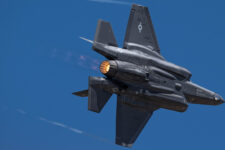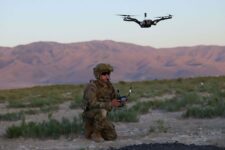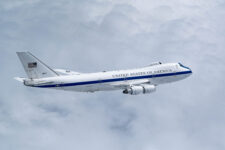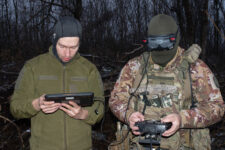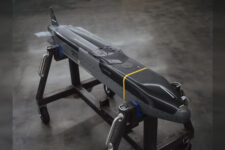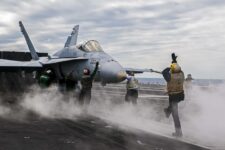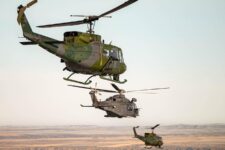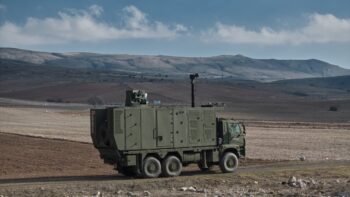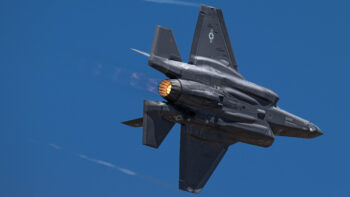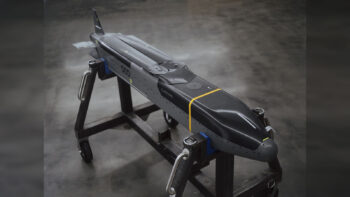
Gen. David Goldfein
WASHINGTON: Air Force Chief of Staff Gen. David Goldfein said today that among other steps the service is taking in the face of Covid-19, the April test of the Air Force’s developing All-domain Battle Management System is being postponed until June.
“It’s really important that we are not cancelling, but postponing,” Goldfein told reporters in a teleconference today. “We want to make sure we get right back on track as soon as possible.”
Goldfein said that in the meantime, Air Force head of acquisition Will Roper is leading efforts to continue technology experiments that will ensure the follow-on exercise is capable of “trying more new things … connecting things we haven’t connected before.”
“What we’re doing is using the time to advance the technologies,” he said.
Goldfein told me March 3 that the second exercise of the Advanced Battle Management System (ABMS), originally planned for April 8, would be much bigger than the first ABMS OnRamp test held in December. It will involve the Air Force, Army, Navy and Space Force, and span a large number of bases from Eglin AFB; Nellis AFB; Yuma Proving Ground; to White Sands Missile Range.
It will focus on a satellite-attack scenario in support of Space Command, led by Gen. Jay Raymond — a first for a US military exercise, Goldfein stressed during that interview. Besides SPACECOM, the exercise will include Northern Command (NORTHCOM), headed by Gen. Terrence O’Shaughnessy, and Strategic Command (STRATCOM) led by Adm. Chas Richard.
As Breaking D readers know, the ABMS family of systems is being designed to enable the multi-service Joint All Domain Command and Control (JADC2) concept to link every sensor to every shooter via a military Internet of Things. JADC2 in turn is one of the top priorities for Chairman of the Joint Chiefs of Staff Mark Milley and Secretary of Defense Mark Esper, as well as Goldfein, as they attempt to map out a new American way of war.
Further, Goldfein said today, senior Air Force leaders — including himself, his Vice Chief Gen. Stephen Wilson and Air Force Secretary Barbara Barrett — are all teleworking to “set and example” for commanders at lower echelons.
“If we can do it, so can they,” Goldfein said. “I started just yesterday,” he added. “I’ve got everything I need for both classified and unclassified to stay connected.”
Goldfein said that at this moment the impacts to the Air Force from the virus outbreak have been minimal, with only seven cases. Lt. Gen. Dorothy Hogg, the Air Force Surgeon General who participated in the press briefing, added that the service expects “cases will increase just like in the general public.”
As the rest of DoD, the Air Force is putting into place social distancing procedures for both airmen and cadets. For example, the Red Flag training exercise slated for May has been canceled, Goldfein said.
Red Flag is the service’s premier air-to-air combat training exercise series, held at Nellis AFB each year and involving hundreds of airmen. The first one this year was held from Jan. 27-Feb. 14.
That said, Goldfein stressed that the service’s global air mobility operations — in support of the other services to deliver spare parts, as well as now helping the Department of Health and Human Services cope with the Coronavirus pandemic by delivering test kits — is continuing. This includes flying into Level 3 countries, such as Italy, in which the the pandemic is rampant, he said.
“Global mobility into and out of Level 3 countries has to continue,” he said.
Goldfein explained that the service considers the aircraft themselves to be a “clean environment,” but that the Air Force is attempting to protect airmen on those missions by “minimizing their movements” once they disembark. “We’re keeping them in a bubble,” he said.
